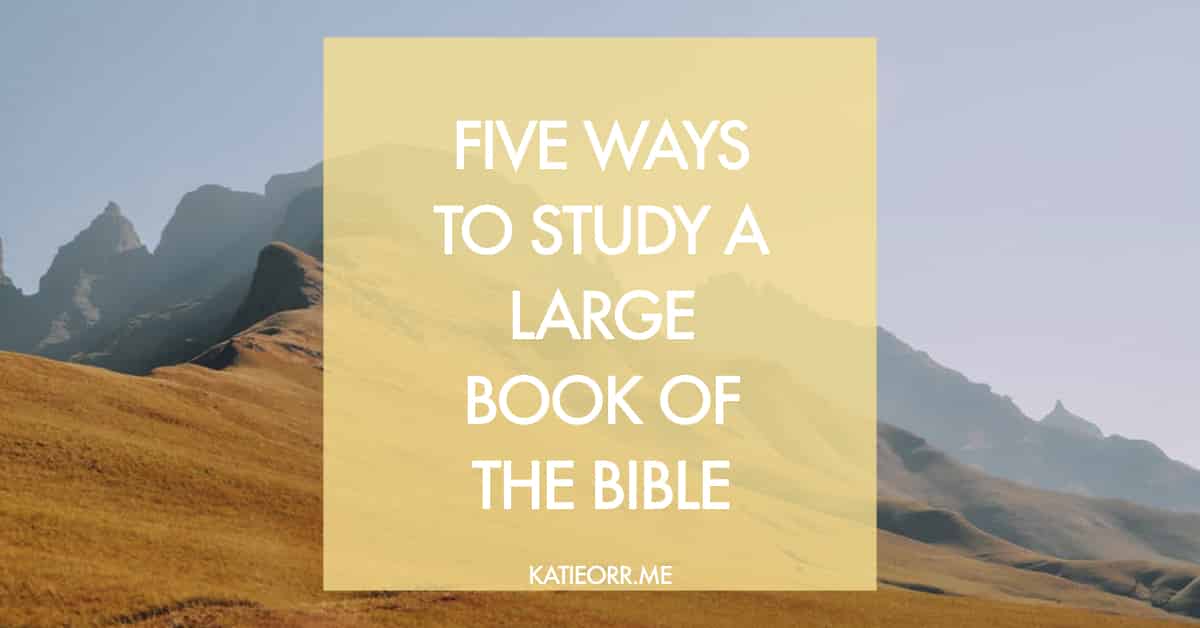“I rejoice at every effort to see the big picture of the Bible. The whole story. The narrative from creation to consummation. The clearer the whole, the clearer the parts. And the more clearly we see the parts, the more accurately we will construe the whole.” — John Piper
There are two needed viewpoints when it comes to Bible study. The one I most often talk about and love to teach people how to use is what I liken to Disney’s A Bug’s Life movie. Seeing the world at that zoomed-in perspective allows us to see details that cannot be enjoyed at a normal vantage point.
However, there is another important perspective we can use to study I like to refer to as the “bird’s-eye-view.” If you’ve flown on a plane and enjoyed a window seat, you know a new appreciation and knowledge of a city can be gained by viewing it at that altitude. You can see the structure and order (or lack of order) in the way the roads are situated, and how the city moves along the river, mountain, and/or other prominent features.
As I get ready to approach the Psalter once again—in view of diving deeper into a select few—I want to be able to see the collection of Psalms as a whole. In general, this is a great practice to incorporate into preparation for any deep study, especially if you are not super-familiar with the big picture of that portion of Scripture. Even if it is familiar territory, there is typically more to see and enjoy on every subsequent trip through the Bible. I brainstormed several options for this bird’s-eye journey through Psalms. These can also be used for another other large portion of Scripture.
How do I study a large passage of Scripture?

Here are five ways to approach a large section of the Bible. Any one of these would be great way to get an overview of a book of the Bible. You might start with the Psalms, Acts, any of the Gospels (Matthew, Mark, Luke, and John), for a new perspective on more familiar territory, or give yourself a challenge and use this through one of the major Prophets (Isaiah, Jeremiah, etc.), Revelation, or Old Testament Narratives (Genesis, Exodus, Ruth, Judges, etc.).
- Read and Underline – Grab a reading plan and a pen or Bible highlighter, and just mark anything that stands out to you.
- Recommended Resource: I LOVE these Micron pens for writing in my Bible (affiliate link).
- Read and Write – This is a great way to slow down and enjoy each word. If you don’t have time to write out the entire passage you plan to read, just pick out one or two verses from the day’s passage and write them out in your journal.
- Read and Pray – Turn the words on the page into a prayer as you read. When you come across a truth about God, praise Him for who He is. If you find a command, proclaim a resolve to follow it and invite the Holy Spirit to enable you to obey. When the author records his own prayer or godly desires, agree with it in your heart, or consider writing it out in your own words as a cry of your own soul.
- Recommended Resource: Praying the Bible (affiliate link) by Donald Whitney.
- Read and Observe – This is a deeper option, and will take a bit more time. As you read each chapter, wear one pair of “glasses” to help you begin to observe that one topic. Choose one color of pen to represent each layer, or create a simple chart in your journal to record what you find. Here are a few great layers to look for:
- Character of God – Who is God? What does He do?
- Covenant promises – What about God and the good news of the gospel can I cling to?
- Commands to keep – Are there any attitudes and/or actions to adopt and/or avoid?
- Read and Memorize – The memorization part will most likely carry on for much longer than the period of time in takes you to read through the passage. However, memorizing key portions of a book of the Bible can really unlock the meaning of the rest of the book. For example, I memorized Romans 8 several years back and anytime I read or study parts of Romans, I tend to see the important connections to the truths expounded on in chapter 8.
Consider trying one (or all) of these out on a smaller book of the Bible first. This will give you a better idea for how long it will take you to get through a larger book, as well as let you see which is most enjoyable to you. We all learn differently. Find what works for you. Tweak it. Make it your own.
Let me know how it goes!
Have you studying an entire book at one time? If not, which would you like to? If you have studied a book like this, which one did you go through? How long did it take? What was your experience like?

I did a study on Esther and found drawn to it. I have found myself going back to it and re-reading it and find a new perspective each time I read it.
I love going back to something I haven’t studied in a while. There is always so much more to see! I haven’t studied Esther in depth…I need to add that to my wish-list! 🙂